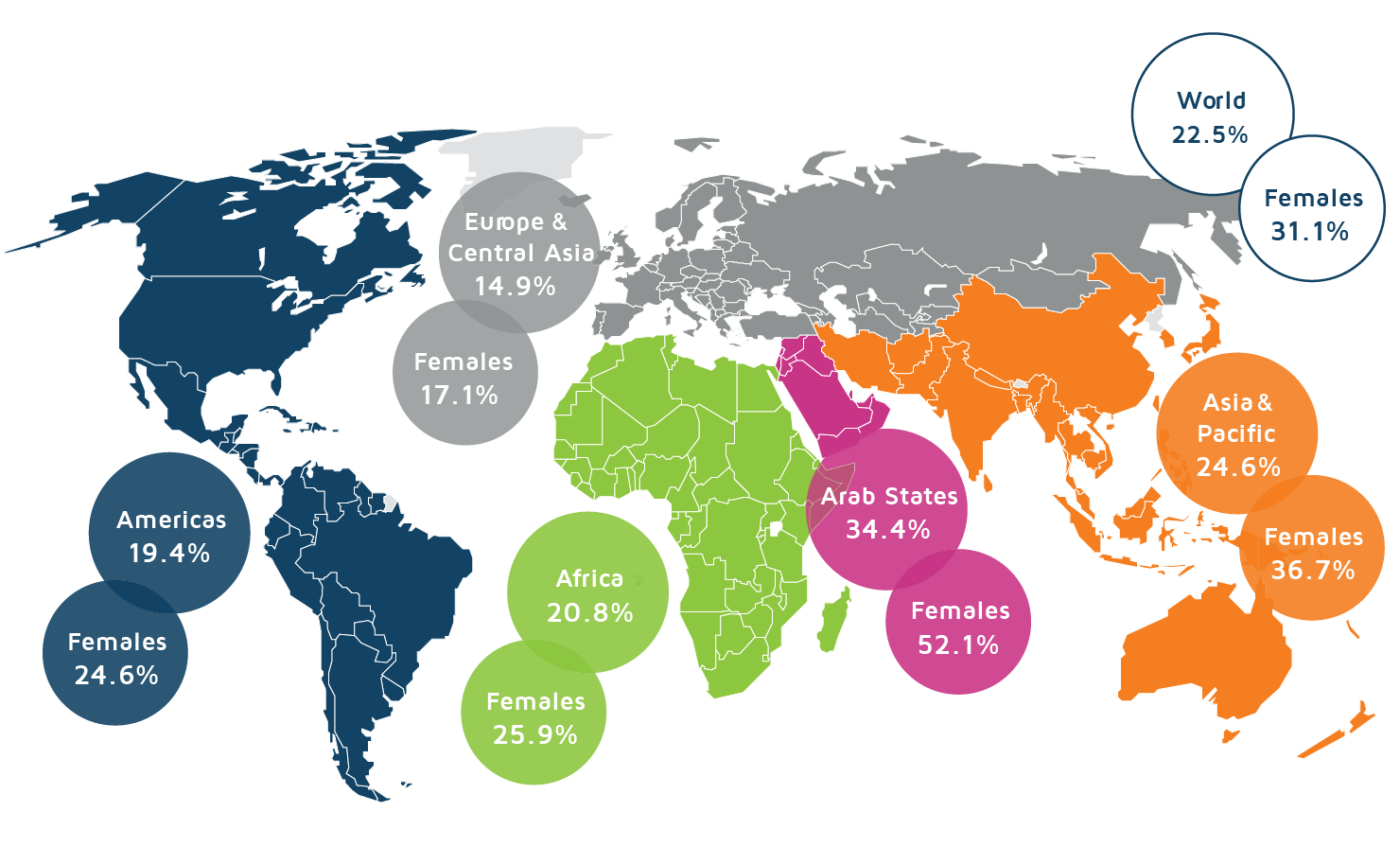The rapidly changing work environment together with the challenges brought about by the coronavirus pandemic have created serious obstacles for the labor force around the world according to a joint report released by UNICEF and the World Business Council for Sustainable Development. Over 57 out of 108 countries report a skills mismatch, meaning that more than half of their workforce are employed in positions that do not match their skills and education with the majority of them, around 72%, being undereducated. The report states that businesses can do much more to remedy the employment mismatches that economies are currently facing.
According to the International Labour Organization, a knowledge gap can be defined as the difference between the skills that employers require and the skills that employees already possess or are expected to gain in the future. Even though the youth of today are more educated than ever before in the past, many are not sufficiently skilled to meet the criteria of the positions they apply for.
The report titled “Empowering the workforce of tomorrow: The role of business in tackling the skills mismatch among youth” highlights several causes that underlie the skills gap:
Impact of a knowledge gap
The knowledge gap not only complicates the situation for those people in search of a job but also that of the companies trying to hire appropriate talent, the report states.
The indicators that best demonstrate the skills mismatch are the rates of youth unemployment and job insecurity. Prior to the coronavirus pandemic, around 500 million youth globally were jobless, underemployed, or engaged in insecure occupations. Current estimates show that, should the present trend continue, by 2030 there will be 1.5 billion school-age children in low- and middle-income economies of whom 880 million will not be on course to attain the most elementary skills necessary to succeed in the labor market.
UNICEF Director for Private Fundraising and Partnerships, Carla Haddad Mardini, noted that rapid changes in the work environment impact youth the most.
“An estimated 1.3 billion people worldwide are affected by skills mismatches – a global and growing challenge. The skills needed to succeed in the future of work and to live fulfilling lives are quickly evolving and young people are affected the most,” Mardini noted.
Geographic distribution of knowledge gap
However, the severity and features of the knowledge gap vary from country to country. Overall, 22.5% of young people around the world are not in education, training, or employed, with most of these being located in Africa, Asia, and the Arab States
Fig.1. Rates of youth not in education, employment, or training (NEET) by region and among young women

What of solutions?
The report recommends businesses become involved in resolving the issue of skills mismatches and in particular points out the need to:
- Develop strategies detailing what skills they have access to today, what skills they will need in the future, and how they can build tomorrow’s workforce and future-proof their business.
- Coordinate closely with governments and the education system to put in place education programs that are better aligned with their expectations.
- Advocate for and promote skills development among young people.
Commenting on the issue, Carla Haddad Mardini said:
“There is an urgent need for businesses to work with and for young people. By developing sustainable skills strategies, collaborating with government and education systems as well as investing in paid internships and apprenticeships schemes, businesses can play a key role in developing the full potential of young people.”
James Gomme, Director of People & Society at WBCSD, pointed out the opportunities that businesses could enjoy by becoming involved in the process.
“The opportunities for businesses to act and contribute to improving training and education, and their relevance for the labor market, are tremendous. Businesses have the power to help unlock the potential and prospects of millions of young people around the world, contributing to a more inclusive and prosperous society while also safeguarding the long-term success of their operations,” he said.

